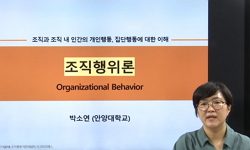[연구목적] 조직 내 갈등은 구성원들에게 부정적인 감정을 일으키고 그 결과 그들의 이직의도를 증가시킨다. 본 논문에서는 Hirshman(1970)의 이론을 이용하여 갈등관리의 참여와 이직의도간의 ...
http://chineseinput.net/에서 pinyin(병음)방식으로 중국어를 변환할 수 있습니다.
변환된 중국어를 복사하여 사용하시면 됩니다.
- 中文 을 입력하시려면 zhongwen을 입력하시고 space를누르시면됩니다.
- 北京 을 입력하시려면 beijing을 입력하시고 space를 누르시면 됩니다.
https://www.riss.kr/link?id=A106998512
- 저자
- 발행기관
- 학술지명
- 권호사항
-
발행연도
2018
-
작성언어
English
- 주제어
-
등재정보
KCI등재
-
자료형태
학술저널
- 발행기관 URL
-
수록면
463-491(29쪽)
- DOI식별코드
- 제공처
-
0
상세조회 -
0
다운로드
부가정보
국문 초록 (Abstract)
[연구목적] 조직 내 갈등은 구성원들에게 부정적인 감정을 일으키고 그 결과 그들의 이직의도를 증가시킨다. 본 논문에서는 Hirshman(1970)의 이론을 이용하여 갈등관리의 참여와 이직의도간의 인과관계를 가설화하고 지속적 몰입, 조직공정성인식, 변혁적 리더십의 상황적 영향을 확인한다.
[연구방법] 이를 위해 본 논문은 선행연구와 이론을 정리하고 인과관계를 파악한다. 한국에 소재한 기업들에서 자료가 수집되어 총 331명의 개인과 48개의 팀이 다수준 분석되었다.
[연구결과] 분석결과 갈등관리에 참여할수록 이직의도가 낮고, 변혁적 리더십을 가진 상사를 가진 구성원일수록 그런 경향이 강하게 나타났다.
[연구의 시사점] 갈등관리를 종합적인 목소리내기 활동으로 정의하고 이직의도와 연결해서 분석함으로써 기존에 상대적으로 간과되어왔던 갈등관리의 중요성을 제시하였다. 또한 개인내부, 팀수준, 리더십의 상황적 요인을 고려함으로써 이론적, 실무적 시사점을 제공하였다.
다국어 초록 (Multilingual Abstract)
[Purpose] Conflicts in organizations evoke negative emotions such as anger, distrust, fear, and frustration, which lead members to increased turnover intention. In this study, I examined causal relations between conflict management and turnover intent...
[Purpose] Conflicts in organizations evoke negative emotions such as anger, distrust, fear, and frustration, which lead members to increased turnover intention. In this study, I examined causal relations between conflict management and turnover intention by using exit-voice theory as a hypothesis and verified it by using continuous commitment, procedural justice, and transformational leadership as moderating variables.
[Methodology] For this purpose, I described prior literature review and I examined various researches to provide understanding of relationships between conflict management and turnover intention. Samples were collected from companies in Korea, with 331 responses analyzed at the individual level and 48 at the team level.
[Findings] The results supported the hypothesis of the relationship between conflict management and turnover intention as a negative linear relationship. This relationship was further analyzed by cross-level moderation with transformational leadership, hypothesizing that participation in conflict management in a team of transformational leaders would lead to a rapid decrease in turnover intention.
[Implications] The research contributes to the fields of conflict management and human resource retention by theorizing the influence of transformational leadership. In addition, the practical importance of conflict management mechanisms such as a gradient and infrastructure system was emphasized.
목차 (Table of Contents)
- Abstract
- Ⅰ. Introduction
- Ⅱ. Theory and Hypothesis
- Ⅲ. Methods
- Ⅳ. Result
- Abstract
- Ⅰ. Introduction
- Ⅱ. Theory and Hypothesis
- Ⅲ. Methods
- Ⅳ. Result
- Ⅴ. Discussion
- References
- 요약
동일학술지(권/호) 다른 논문
-
Kano 모형 및 Timko의 고객만족계수를 통한 할랄마트 서비스 품질 인식에 관한 연구
- 한국경영교육학회
- 오라카이샤자드
- 2018
- KCI등재
-
AHP를 활용한 온라인 화장품 몰에서 제품구매 시 선택속성에 관한 연구
- 한국경영교육학회
- 김동현
- 2018
- KCI등재
-
리더-멤버 교환관계(LMX)가 조직성과에 미치는 영향: 조직지원인식의 조절효과
- 한국경영교육학회
- 진도령
- 2018
- KCI등재
-
PMO 기능이 프로젝트 성과에 미치는 영향에 관한 연구: 지식기여의 매개효과 중심으로
- 한국경영교육학회
- 김승기
- 2018
- KCI등재





 DBpia
DBpia






